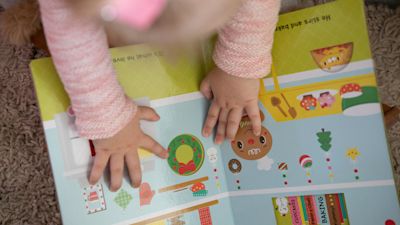Wales now has the worst child poverty rate of all the UK nations, new study shows

Video report by ITV Wales journalist Jess Main
Wales now has the worst child poverty rate of all the UK nations, with 31% of children living below the poverty line, new research shows.
England has 30%, while Scotland and Northern Ireland each have 24% of children living in poverty.
Even before the pandemic, almost 200,000 children were living in poverty in Wales, with a higher proportion of children affected than at any point in the past 5 years.
The research carried out by Loughborough University for the UK End Child Poverty Coalition shows that parts of north and west Wales have seen the most dramatic rise in child poverty in the past five years, fuelled by stagnating family incomes, while, high housing costs in Cardiff are pushing many families.
The new data that three constituencies with the highest child poverty rates are in South Wales Central, with Cardiff South and Penarth showing a particularly steep increase in the number of children in poverty over the past 5 years.
The data also exposes inequality within parts of Wales, with Cardiff constituencies occupying both the highest and lowest places on the constituency rankings.
In the south of the city, almost 4 in 10 children are living below the poverty line, compared to 2 in 10 in Cardiff North.
Child poverty rates have continued to rise right across Wales, with the study finding 20 of Wales’ 22 local authorities seeing an increase over the past 5 years.
Rural and coastal areas continue saw a rise in the prevalence of child poverty, with Carmarthenshire, Pembrokeshire and Ceredigion all seeing rates increase above the Welsh average.
Tracy Olin is the manager of PATCH, a Pembrokeshire charity that helps families living in poverty.
The charity have been giving free food parcels since 2008, but also clothing and household items to those in need in the area.
She said: ''I think people understand the food poverty now but they don't see that it's so much bigger than just the need for food. It's everything.''
In Wrexham, the child poverty rate rose three times faster than the Welsh average, with over 1000 more children living in poverty in the county compared to five years ago.
Melanie Simmonds, head of Save the Children in Wales said: “We’ve repeatedly heard from families living on low incomes how they have had to cut back on essentials such as food, heating and clothing for children and are sinking deeper into debt."
He added: "Many parents also didn’t have the tools, resources and skills to adequately support their child’s learning and development at home which led to a lot of stress and anxiety."
The charity is calling for the incoming Welsh Government needs to "prioritise" reducing child poverty with "clear measurable milestones and ambitious targets to ensure that no child is disadvantaged because of family income."
''The reality for families behind the statistics is really frightening''
It also wants "further support for parents to be able to engage in their children’s learning and development at home and for the eligibility of free school meals to be extended to all children, including over the school holidays, where a parent or guardian is in receipt of Universal Credit or equivalent benefits."
The Welsh Government said it has "increased support during the pandemic."
It said: “We will support all those children and families who need help – we have increased support during the pandemic, taking urgent action to help families living in poverty, including providing more than £52m to provide free school meals to Easter 2022 and an extra £13.9m through the Discretionary Assistance Fund.
“Our Child poverty: income maximisation action plan sets out a series of practical actions to help maximise family incomes, reducing living costs and helping to build financial resilience."
It added: “As we recover from the pandemic, we will build a fairer, stronger, greener Wales in which no one is held back or left behind.”
The coalition is also calling on the UK Government to "create a credible plan" to end child poverty which "must include a commitment to increase child benefits."
It wants the planned £20 per week cut to Universal Credit in October should be revoked.
The UK Government said: “We are committed to supporting families most in need, spending billions more on welfare and planning a long-term route out of poverty by protecting jobs through furlough and helping people find new work through our Plan for Jobs.”